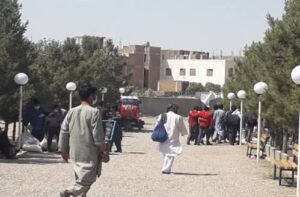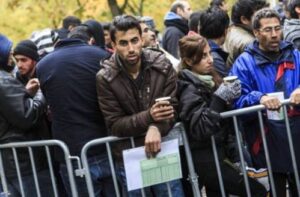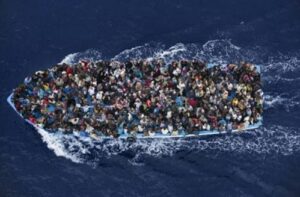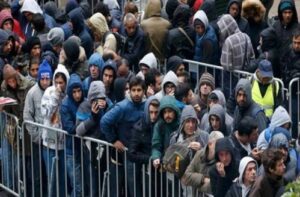
KABUL (SW) – Habib (a pseudonym) is a young man who, three years ago, embarked on high-risk path without any prior knowledge of the difficulties of irregular migration, and handed himself to smugglers.
Habib, who lives in Ghor province, said in an interview with Salam Watnandar that he knew nothing about the difficulties of irregular migration and the problems of living in the country before going to Iran like other victims of illegal immigration. He said the smugglers had told him that there was no threat on the way to him, but contrary to what they promised, the human traffickers sold him repeatedly among them throughout the long and dangerous path from Ghor to Tehran.
Habib said while recalling memories and problems that he encountered during the irregular migration route, that the smugglers were carrying 25 to 30 people in vehicles meant for no more than 10 people, and they had to travel for hours on bumpy and rough roads for hours without any food or water.
Habib goes on to say that some of his friends' legs were broken while walking for hours.
Many such returnees say the difficulties of irregular migration are not summed up in the country of destination, but they only begin with the stay and work in the neighboring country.
Although, most immigrants work hard, Habib added, employers in Iran dismiss them at the end with insult and humiliation, and without a pay. Habib said that when he insisted on getting his paycheck, the employer angrily insulted him and threatened to hand him over to police. He said the Iranian police tortured him with electricity and even threw him in a well for two days for being an Afghan.
Local officials and a number of Ghor civil society activists told SW that many youngsters have lost their lives on this treacherous journey.
Abdul Rauf Ghafouri, head of the Ghor Refugees and Returnees department, said in coordination with the International Organization for Migration in Afghanistan (IOM) some 1125 people who have been deported from Iran have been registered. According to him, 250 of them are underage children.
Ghor civic activists say human traffickers here have even infiltrated religious schools and conventional public schools encouraging children and adolescents to go abroad.
Mohammad Wazir Nourani, head of Ghor's civil society network, said that while they have always complained about the dangers of trafficking, government officials have taken no serious action in this regard.
Officials at the Human Rights Commission's field office in Ghor confirm that Afghan migrants are always harassed and humiliated and even exploited by border traffickers and soldiers.
Sajjad Sahl, head of the Ghor Provincial Office for Human Rights, considers any abuse of migrants by the border police and traffickers in violation of all national and international human rights law.
Civic activists and HRC field office officials in Ghor continue to call on government officials to provide education and employment opportunities for youth in the country and to launch awareness programs for youth and adolescents on the dangers of irregular migration to foreign countries and the blind trust in traffickers.
Say no to irregular migration!
ENDS





